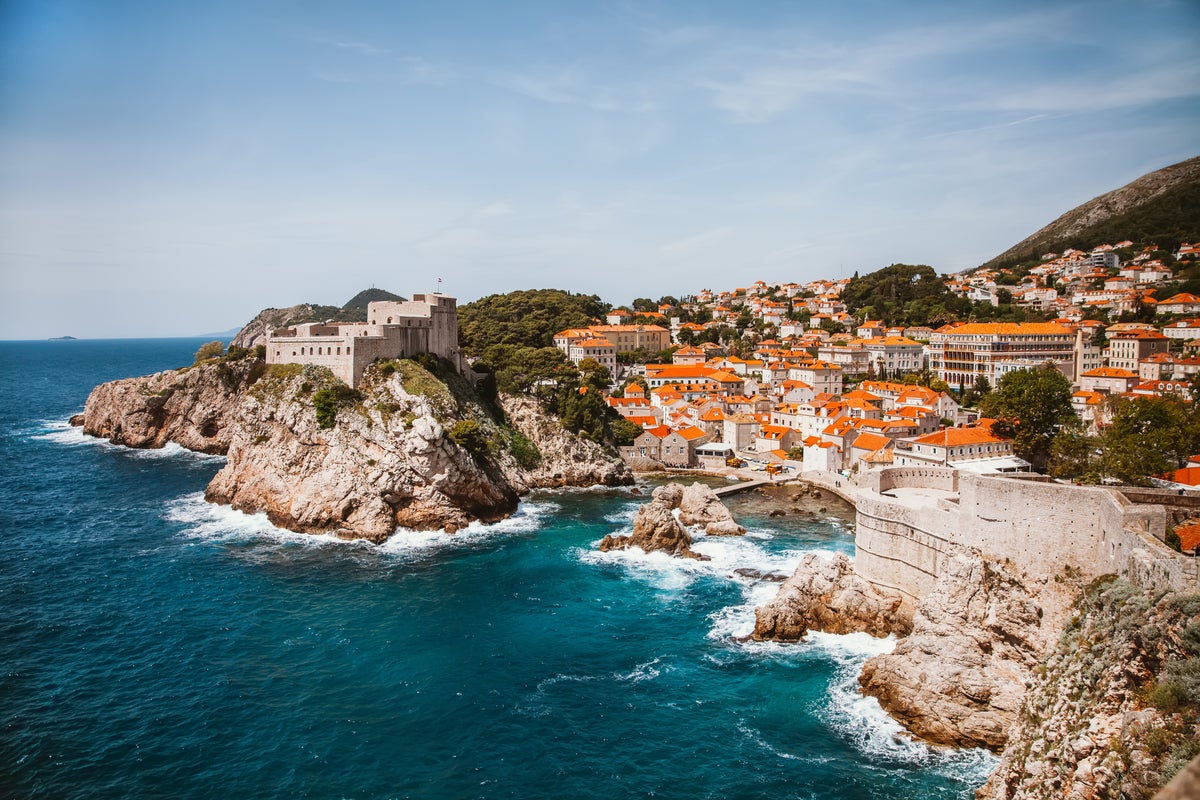
Aptly nicknamed “the Pearl of the Adriatic”, Dubrovnik has long been renowned as one of the most popular tourist destinations thanks to its beautiful architecture and natural surroundings.
Colossal stone walls, limestone-paved streets and breathtaking historic buildings are just a handful of the unique qualities characteristic of one of Croatia’s jewels, all perched on the edge of the glimmering Adriatic Sea.
The city’s Old Town was listed as one of Unesco’s world heritage sites due to its picturesque and well-preserved Gothic, Renaissance and Baroque architecture, while its hidden beaches, caves and idyllic landscapes have also drawn in admirers.
Its popularity has also peaked in recent years, with the city forming the backdrop for key scenes in the hit HBO series Game of Thrones. Some of the show’s most memorable moments to take place in the fictional city of King’s Landing were filmed at Fort Lovrijenac and along the city walls, prompting themed tours around the city.
With so many historic sites to visit and views to set your eyes on, we’ve rounded up some of the most beautiful places to visit in Dubrovnik.
And if you are looking for a place to stay within the walled city, see our guides for the best hotels, best beach hotels, best boutique hotels and best family hotels in Dubrovnik, picked by a Croatia expert.
Most beautiful places to visit in Dubrovnik
1. Fort Lovrjenac
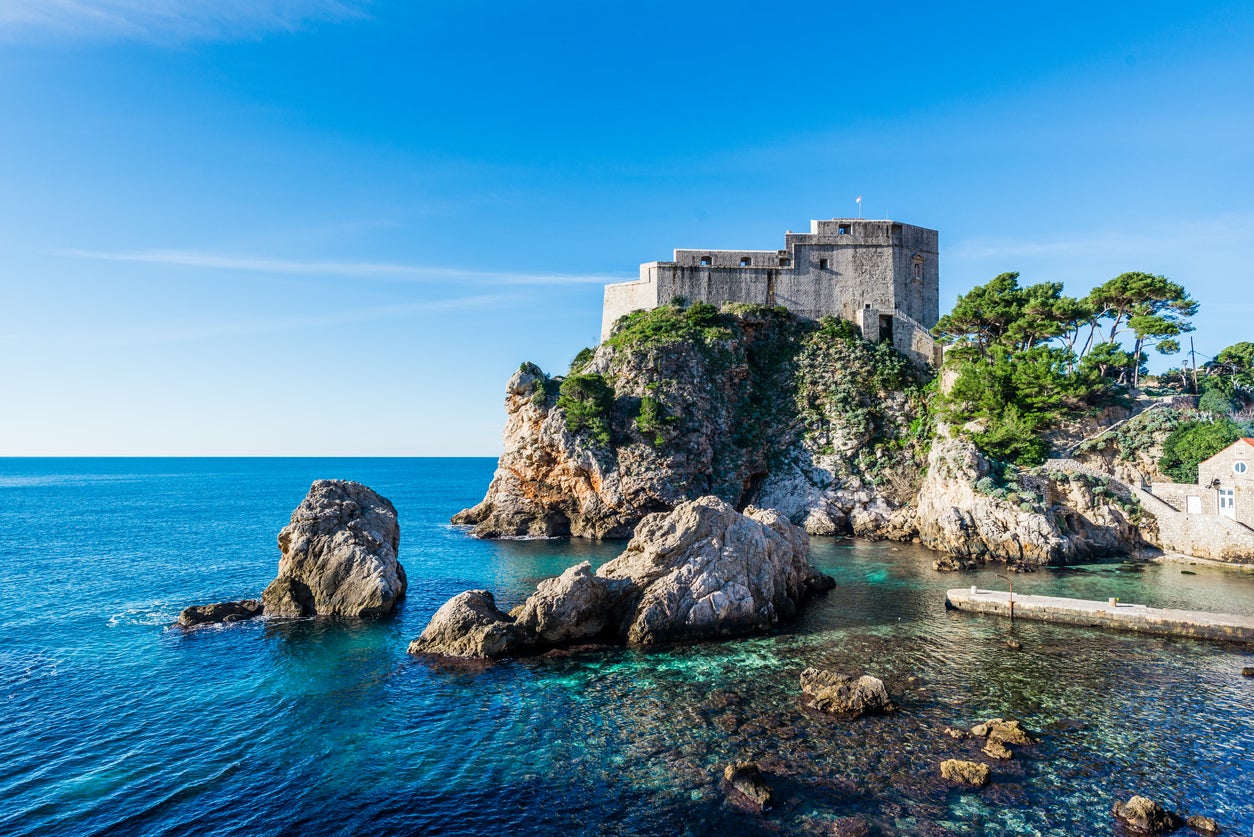
Fort Lovrijenac is a popular spot for Game of Thrones fans as it forms the centrepiece for the Red Keep in the TV series. The stronghold is much more than just a film set, however.
Also known as St Lawrence’s Fortress, the fort is perched on top of a 37m-high rock surrounded by the crystal blue Adriatic waters. Dating back at least 700 years, this historic structure enjoys excellent views of the Old Town and West Harbour.
Read more: The best Croatia cruises for island-hopping excursions to ancient cities
2. The Old Town City Walls
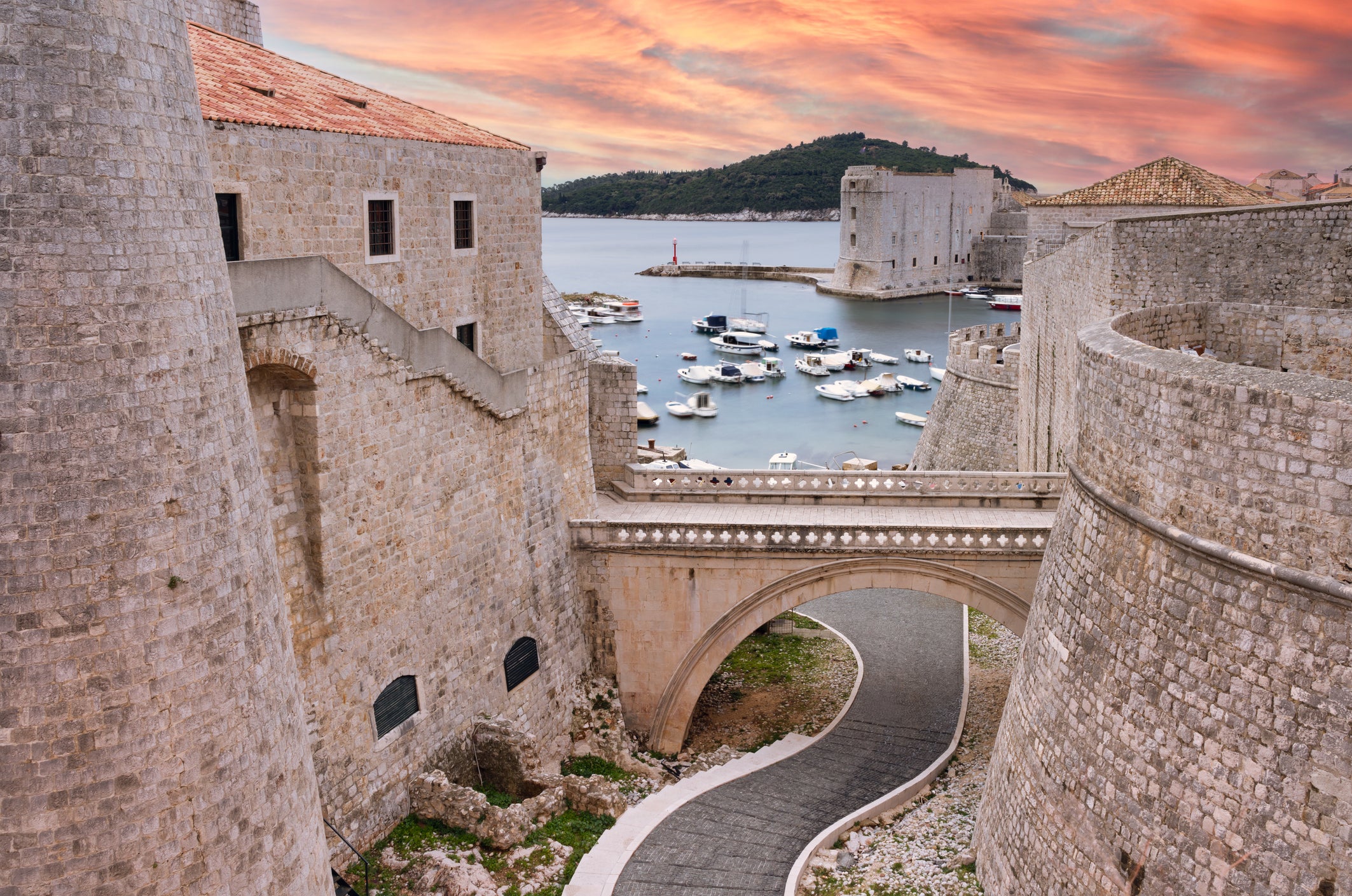
The city walls that snake around Dubrovnik’s Old Town are one of Europe’s most well-preserved fortifications, providing a historic and unique opportunity to see some of this picturesque city from a different angle.
At 940 metres in length and at 25 metres high, a stroll along these historic walls passes terracotta rooftops, architectural feats such as St Luke’s Tower and Fort Minčeta, plus wonderful views of the shimmering sea and the town below. With limited shade or shelter, it’s recommended to walk the walls early in the morning or later in the day when the sun is lower and the temperature is cooler.
Adults €40 (£35)/children €15 (£13). Book here.
3. Cable car up Mount Srđ
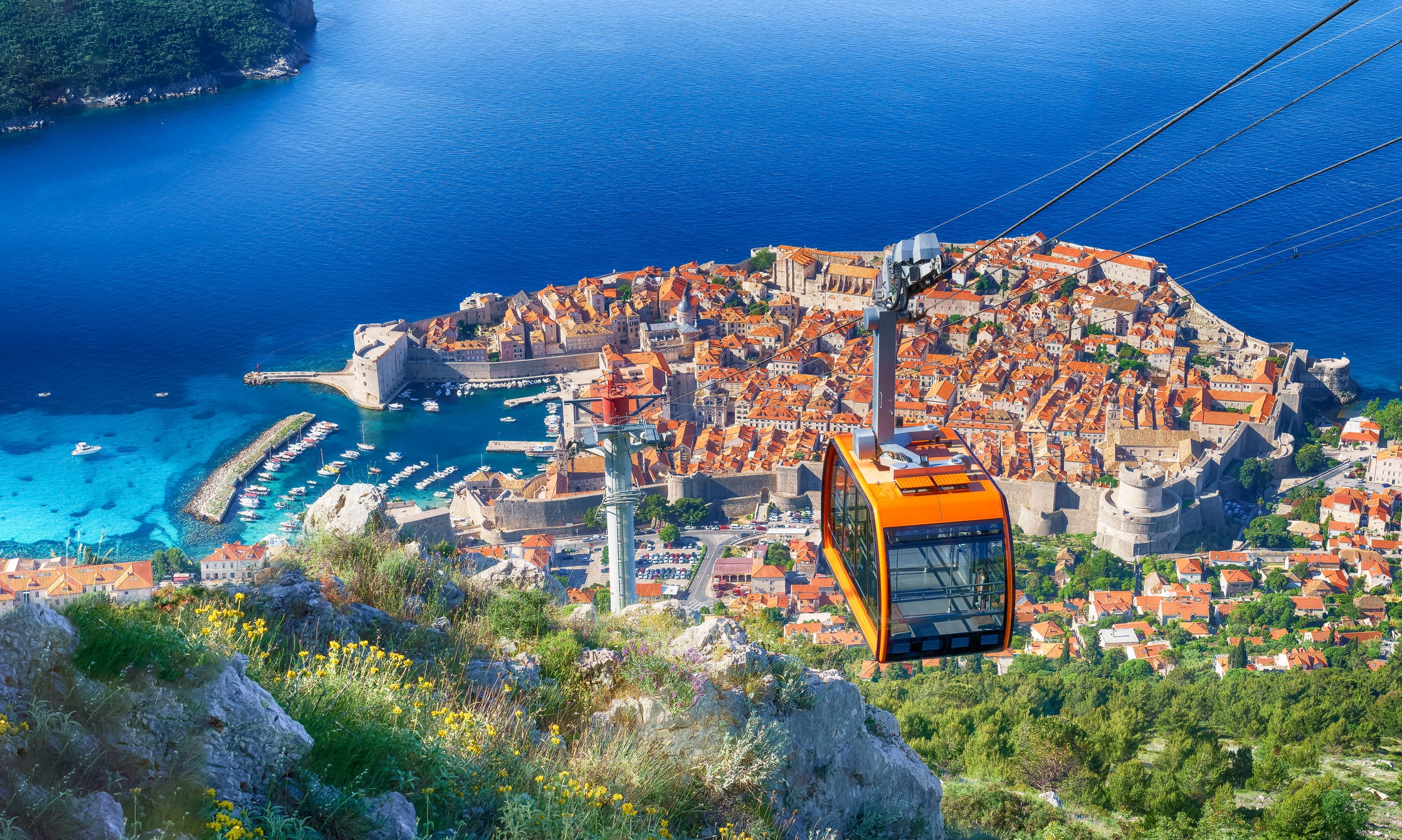
While walking the walls of the Old Town offers some stellar close-up views of Dubrovnik, nothing quite beats catching a bird’s-eye view of this striking city while gliding up a hillside in a cable car. Choose a clear day to head to Dubrovnik’s cable car service to see a panoramic view up to 37 miles away.
The cabin takes you to the top of Srđ Hill, where you can make full use of the viewing platform to soak up the idyllic views and stop at the restaurant and shop. While the spectacular views may cost a little, this is the ideal spot to take in the best sights this city has to offer.
Adults €30(£26)/children €8(£7) return. Book here.
4. Lokrum
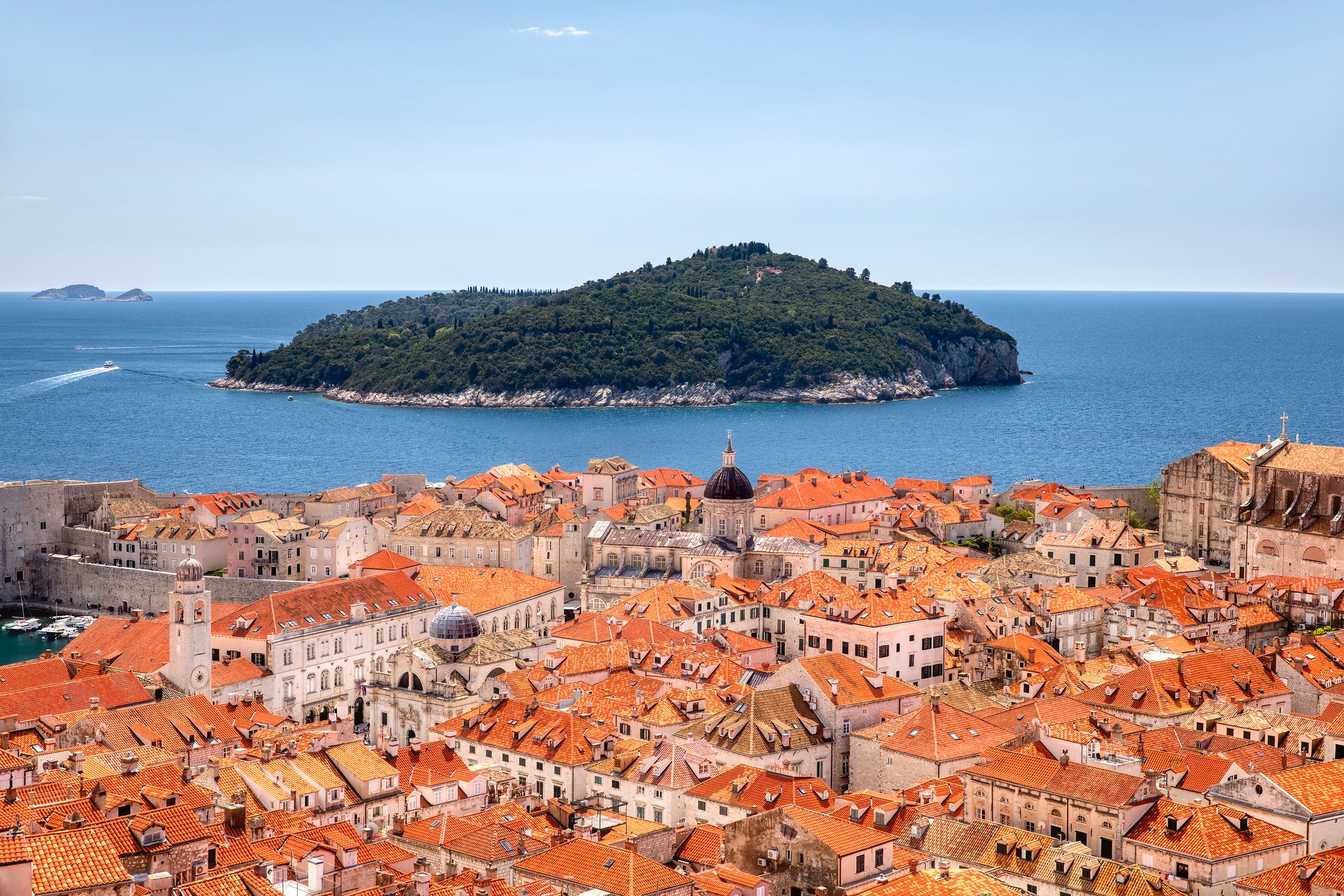
Eagle-eyed visitors walking around the Old Town or sightseeing from Srđ Hill may spot a small island off the coast of Dubrovnik, completely covered in vegetation and densely packed trees. This is Lokrum, an uninhabited island and nature reserve. Much of its plant life owes to the botanical gardens that were established when Austrian archduke Maximilian I had a residence here in the late 1800s.
While the reserve island is now uninhabited, it’s a perfect place to spend an afternoon exploring other points of beauty and hidden gems away from the city. Visit the large medieval Benedictine monastery, and the stunning ruins of the 19th-century Fort Royal at another end. Take the time to escape the hustle and bustle of Dubrovnik by surrounding yourself in botanical wonders or simply chilling on the rocky shoreline before taking a quick boat ride back to the mainland.
5. Cliff Bars
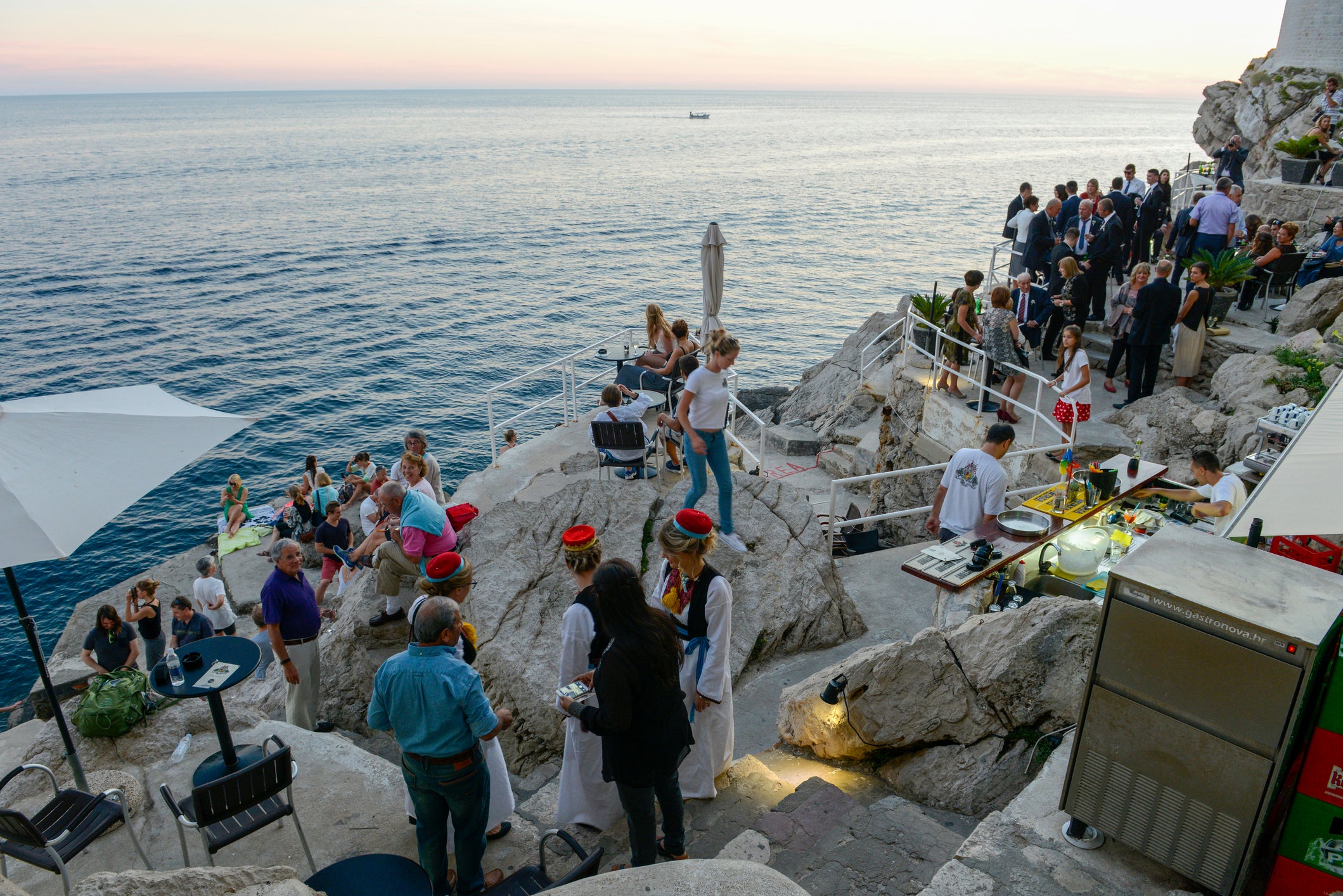
Sightseeing can be a tiring venture, so why not do it from the comfort of your seat with a drink in your hand? Thankfully, a series of hass have been established within the cliffside that enable you to do just that. Take the weight off your feet and relax with a glass of something cool at Buza Bar (translating as “hole-in-the-wall” in the old Dubrovnik dialect) or Bard Mala Buža and look out over priceless views of the Adriatic and Lokrum from a distance.
While the bars may get busy, it’s well worth stopping back and soaking up the unique atmosphere for a least one before moving on.
Read more: The best boutique hotels in Dubrovnik for Old Town charm and former palaces
6. Stradun
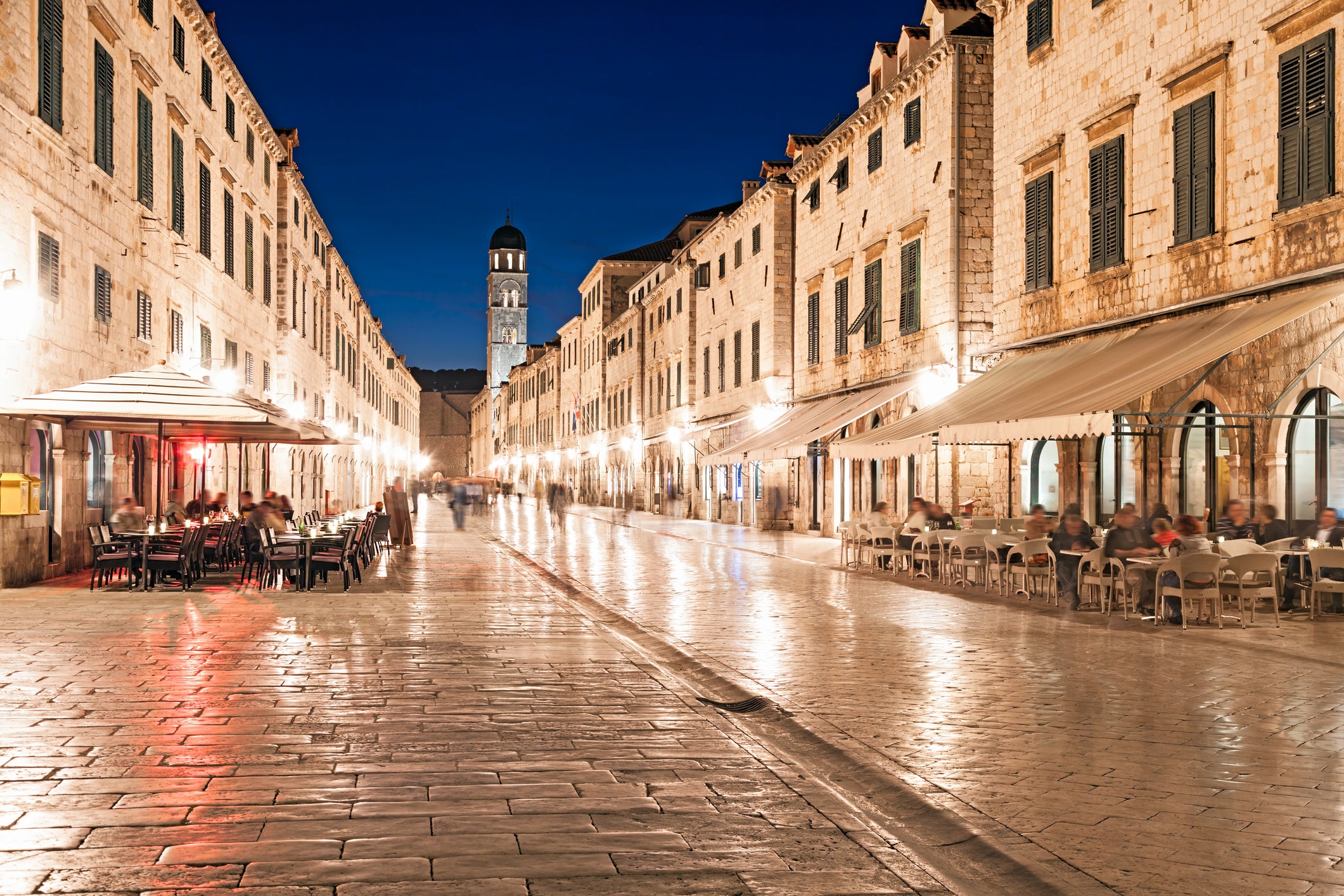
Dubrovnik has plenty of opportunities to embrace the city’s natural wonders, but just as sensational are the cream and white buildings, complete with terracotta roof tiles that line the streets. Stradun, Dubrovnik Old Town’s main street, is a busy hub of the city, but a stroll down the pedestrian-only walkway should not be overlooked.
Packed with restaurants, shops and cafes, the street earns its beauty points due to its white limestone paving and uniform buildings, each complete with grand archways over their entrances. Stradun is also crawling with historic buildings, starting with the magnificent Pile Gate at one end of the street, to the elegant 16th-century Sponza Palace at the other. Orlando’s Column and the Clock Tower are also worth a look.
7. Velika and Mala Petka Forest Park
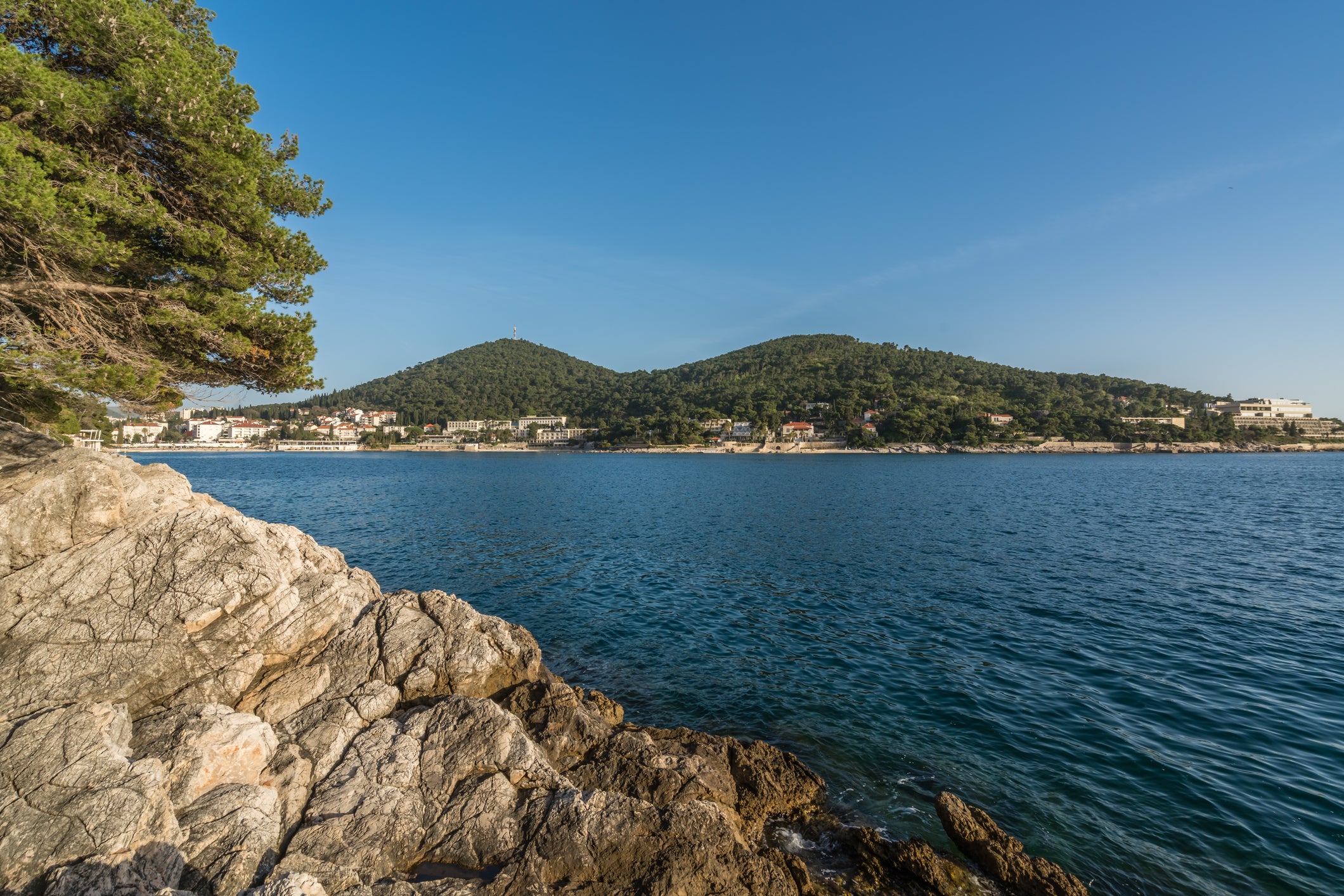
If you need to take a breather from Dubrovnik’s bustling centre, head over to the residential neighbourhood of Lapad. Here, you will find Velika and Mala Petka Forest Park, a green area spanning 106 acres covered in Aleppo pines and other trees.
The park is named after its two hills, Velika and Mala (translating to big and small, respectively), attracting trekkers and hikers to complete trails around the foresenjoyjoying magnificent views of the sea. The park also attracts twitchers to spy on the area’s feathered friends living within the foliage.
Read more: Why a race-cation is the best way to discover Hvar’s serene side
8. Trsteno Arboretum
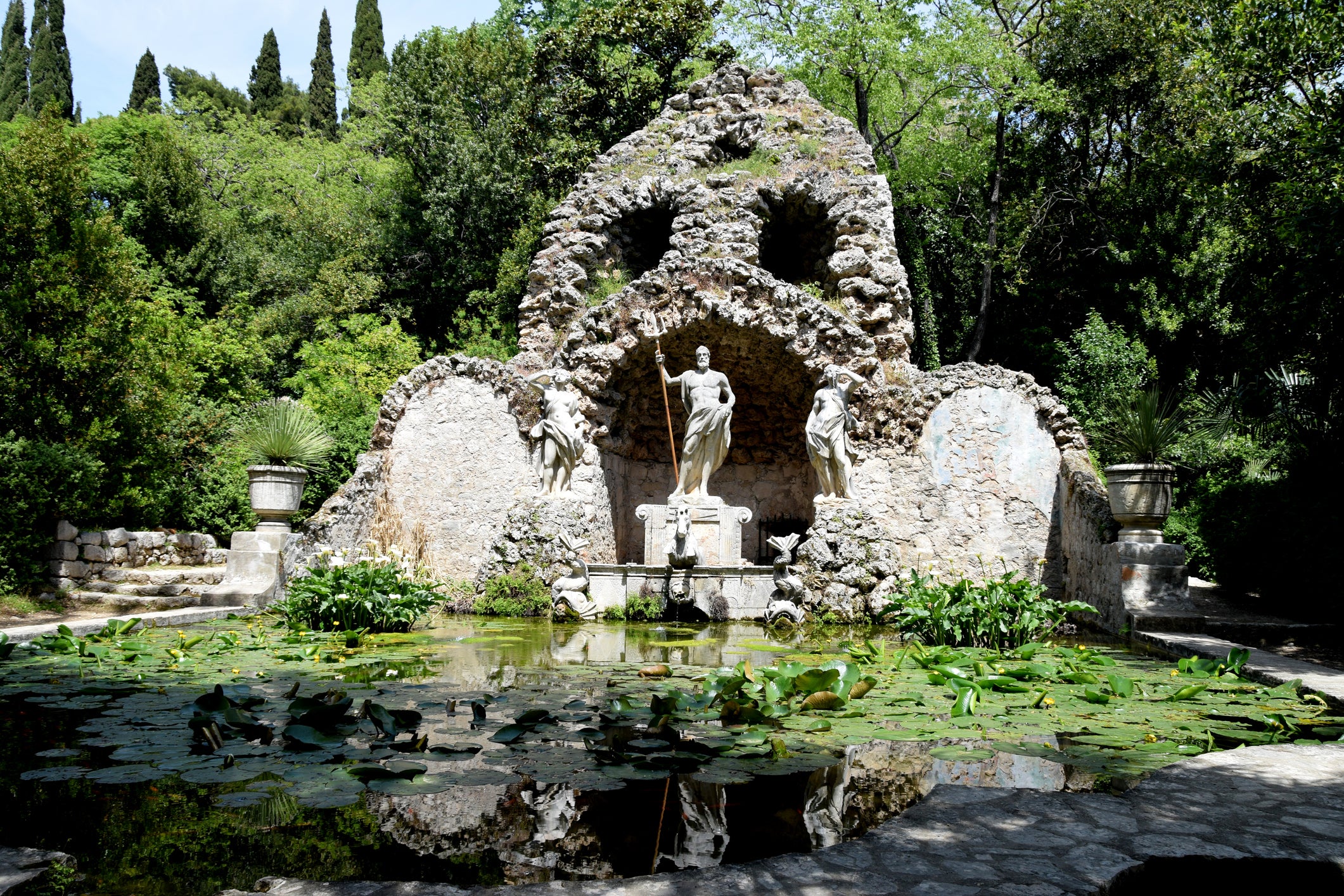
Just under 20km north of Dubrovnik lies a peaceful slice of history. Trsteno Arboretum, a large botanical garden, was created around the summer residence of the Gučetić (Gozze) noble family of the Republic of Ragusa in the late 15th to 16th century. As one of the region’s oldest botanical gardens, the arboretum still boasts impressive vegetation, including colourful flowers, plants shaped into geometrics, and the garden’s jewels: two giant plane trees thought to be over 500 years old, greeting you at the entrance.
Weave around the many walkways in this tranquil setting, keeping an eye out for the pretty villa and infpavilionillion, known for its cameos in Game of Thrones. A majestic 18th-century grotto can also be found amongst the gardens with a statue of Neptune, flanked by two nymphs and overlooking a lily pond, at its centre. Catch a local bus to Trsteno Arboretum from Dubrovnik.
From €10 (£8.80)for an adult single ticket/€7 (£6)for children. Book here.
9. Monasteries, palaces and cathedrals
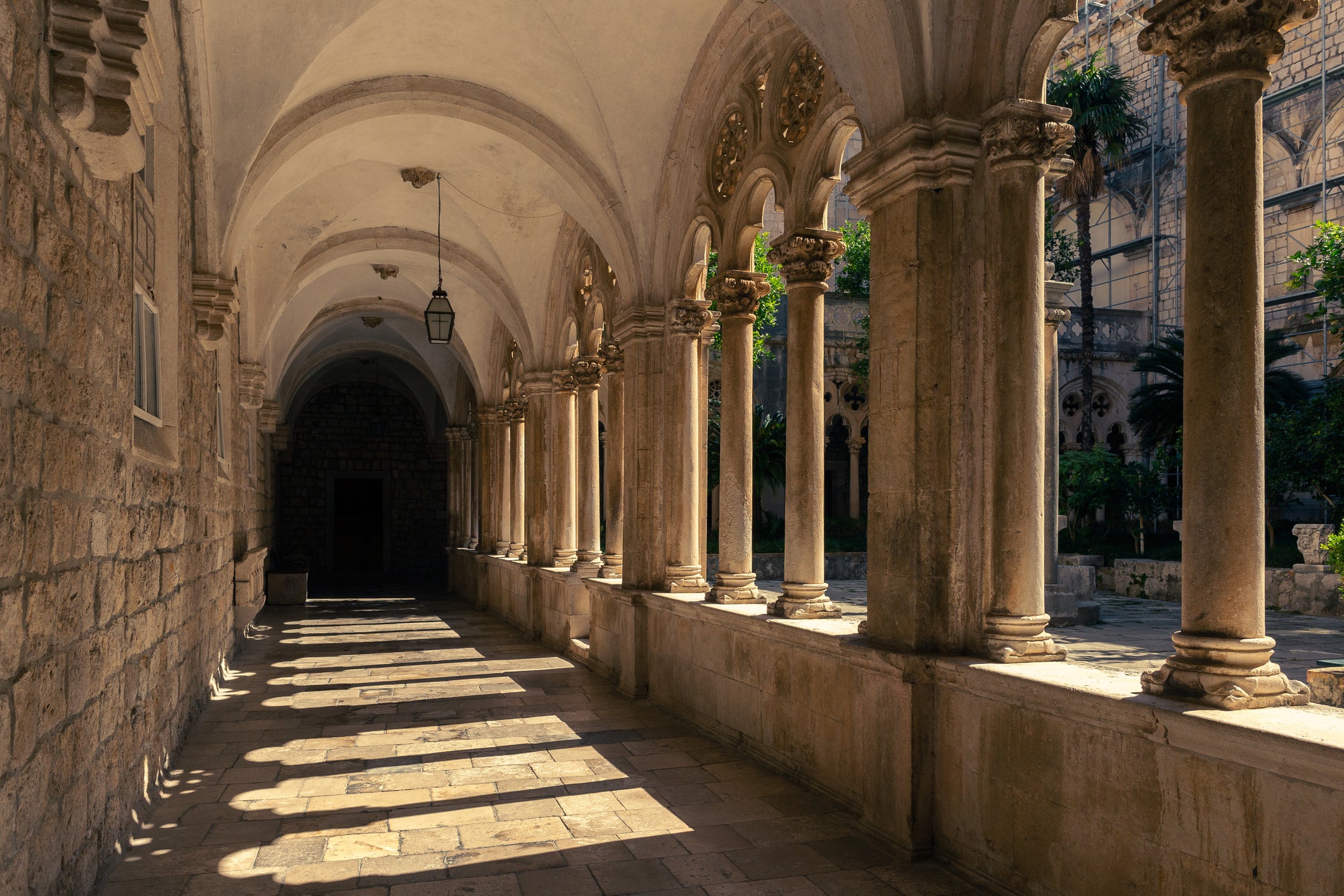
As well as admiring the architecture while walking down Stradun, it’s worth stepping inside some of the city’s heritage buildings to take in the beautiful constructions from the inside (they also serve as a cool refuge from the hot weather). The Cathedral of the Assumption of the Virgin Mary is the city’s Roman Catholic religious structure and is home to the infamous Baroque dome synonymous with Dubrovnik’s cityscape.
The 14th-century Franciscan Monastery is also worth a look; inside is the third-oldest working pharmacy in the world that has been in business since 1317. Elsewhere, the Dominican Monastery provides a peaceful courtyard to walk in away from the city crowds, while the Rector’s Palace, a Gothic-Renaissance structure that now holds the Cultural History Museum, is filled with paintings and an eerie dungeon.
The Cathedral is free to enter, Franciscan Monastery from around €6 (£5), Dominican Monastery from around €5 (£4.23), Rector’s Palace €10 (£8.80). Book here.
Read more: The best beach hotels in Dubrovnik, for rooms with views along the rocky coastline
10. Sveti Jakov Beach
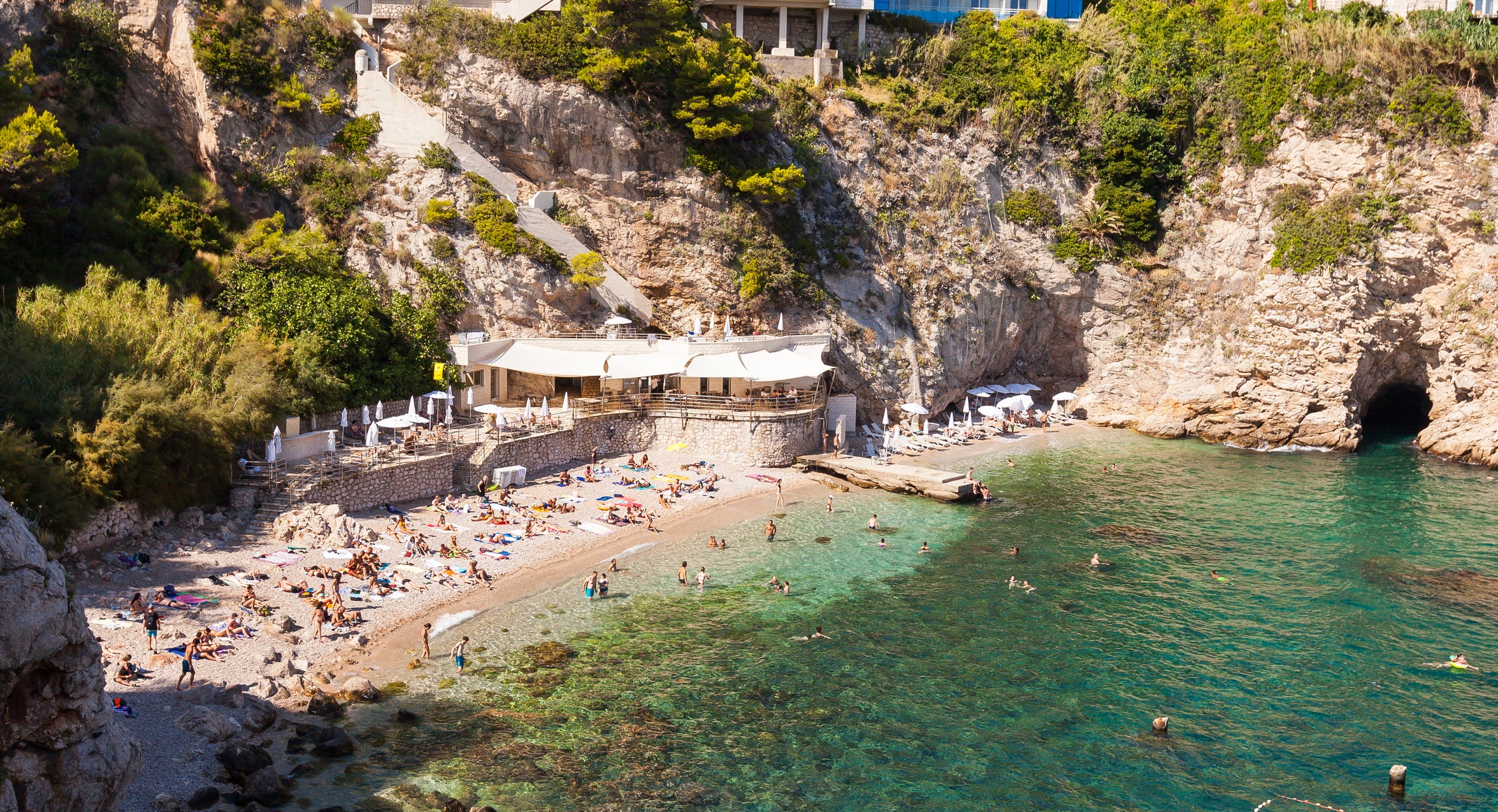
While Banje Beach is a well-known seashore spot situated near the Old Town, Sveti Jakov Beach is rated as the more favourable spot to immerse yourself in the Adriatic waters, with the City Walls still in view. The pebbly beach is surrounded by cliff rocks and greenery, leading up to the historic Church of St James, which the beach is named after.
11. Admire the coast from a kayak
When you arrive in Dubrovnik, you may notice the groups of colourful kayaks gliding along next to the Old Town City Walls. A popular activity here, there are plenty of kayaking rental and tour vendors down by the port to see the city from a new perspective. Kayaking along Dubrovnik’s section of the Dalmatian Coast will allow you to take in views of the Old Town from down below, while a guide can tell you about the history and natural surroundings.
Take a kayaking tour to the nearby Betina Cave, a small cliffside alcove, to spend time in this hidden gem away from the crowds. Or join a tour out to the small island of Lokrum.
Read more: This little-known Croatian region makes wine loved by the royal family – with bottles as cheap as £4
12. Onofrio’s Large Fountain
One of Dubrovnik’s most famous landmarks, this recognisable fountain structure sits just off Stradun and was used as a water supply by city dwellers upon its completion in 1438. The large polygonal fountain looks more like the top of a cupola rising from the ground and is decorated with 16 stone-carved maskerons out of which the water runs.
This impressive structure is now hooked up to the new waterworks system, and is often a place visitors and citizens stop for a rest, admiring the unusual fountain and the stone architecture that surrounds the area.
Read more: The best hotels in Dubrovnik for family getaways and kids’ clubs
I’d go back to this stylish family-friendly hotel in Crete in a heartbeat
The best way to do Greece this autumn is to visit this Unesco-listed hidden treasure
6 of Spain’s warmest places for winter sun
The best boutique hotels in Dubrovnik, reviewed







